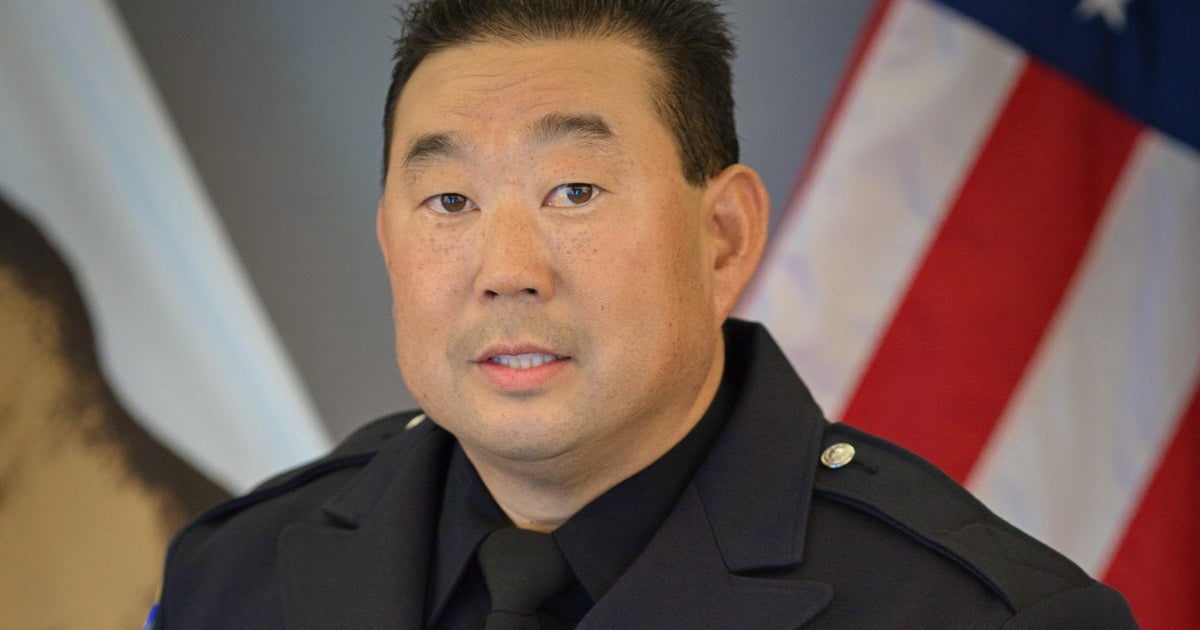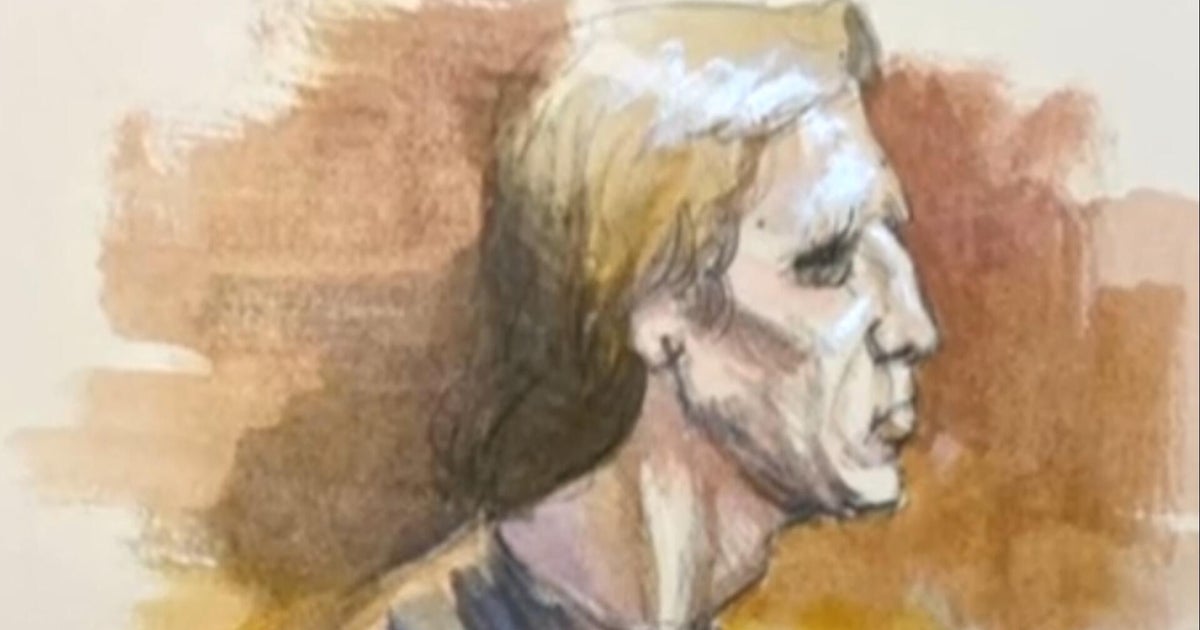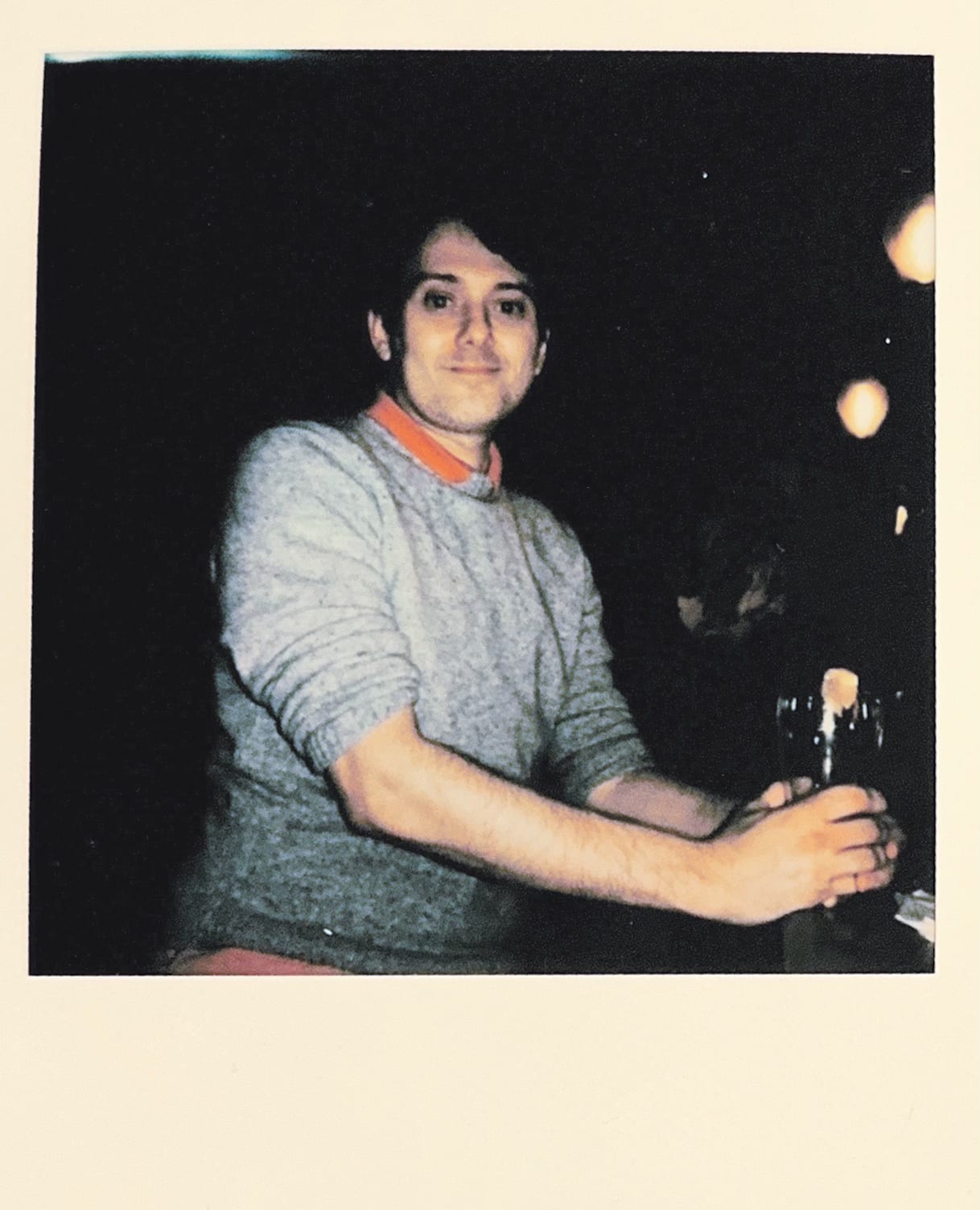Gangs thrive in maximum-security prison
California had a growing problem with prison gangs, and decided the best way to deal with it was by locking up the leaders in a place so impenetrable and isolated, they'd be out of contact and out of business.
But things did not go according to plan. Lesley Stahl has the story of how a bunch of gangsters went to one of the most maximum-security prisons in the country, and turned it into their criminal headquarters.
Pelican Bay State Prison is a super-maximum penitentiary in Northern California. And yet with all the surveillance and isolation, gangs still run thriving criminal enterprises out on the streets – from within the fortress.
Lt. Steve Perez, a senior official at Pelican Bay, took 60 Minutes on a tour of the penitentiary. "These are the most creative, the most ingenious men, deeply committed to achieving their criminal goals," says Lt. Perez, who led the way to SHU, the security- housing unit, a special prison within the prison.
It's where gang leaders are housed in nearly solitary confinement. They're locked up in their cells 22-and-a-half hours a day. They are searched regularly for weapons, and their personal effects are X-rayed for contraband.
They get to exercise for about an hour a day in a small, dreary yard. Their only companion is a surveillance camera. And yet, Lt. Perez says, they manage to outwit the tight security to plot and scheme with one another.
"They'll use a drain right here, and they talk down through this drain," says Perez. "In fact, you can talk quite a ways down, because basically, when we designed the draining system, we connected a number of these individual exercise yards together, never thinking that this is how they would begin to communicate."
And there's little the prison can do about it, since with all the rain in Northern California, they can't plug the drainage system. "Now what we do is we pay attention to what they're saying," says Lt. Perez. "We listen as much as we can."
Perez showed other ways the inmates foil the security. He stopped at a cellblock for Brian Moore of the Aryan Brotherhood, a white supremacist prison gang. He's been in the SHU since 1999.
Moore, who is serving 18 years to life for second-degree murder, can't see his next-door neighbor, or anyone else on the block. And yet they communicate by what they call "fishing."
"You just take your little string line right here with a little weight on it, like that," says Moore, who makes a 40-feet-long line by tearing up his underwear or his bed sheet and braiding the threads together. He then fashions a weight out of soap. "And you just throw it out the door, and somebody else throws their other line out."
Just then, a written message came flying down from the upper tier. Moore demonstrated how he fishes, by flinging a line out, hooking it around the other line, and reeling it in. Once Moore ties the two lines together, the inmates easily send messages back and forth.
"If you know that they're fishing, and that they're sending messages like this, why do you let it go on?" Stahl asks Lt. Perez.
"We don't. The officers are required to search so many cells every day," says Perez. "The officer will come in. If he finds a fish line, he will take it at that time. The problem is that no sooner than I take it, he will go back to his bed sheet and he'll unravel the string again, the threads, and start the process all over."
With inmates who have nothing to lose, the authorities are left with nothing but frustration.
"Do I leave them without sheets? Do I take his T-shirts away? Do I leave him naked in his cell? How's that going to sound?" asks Lt. Perez.
Once they communicate with each other, the most effective way they get their messages to their foot soldiers on the outside is through the mail, which is one of their rights guaranteed by law.
Trained prison investigators like Devan Hawkes scrutinize every letter that goes in and out of the SHU, an average of 2,000 a day. One case involved a member of the Mexican Mafia.
"We reviewed over 1,000 letters that he sent out. And in those letters we found evidence of over 500 crimes that he committed," says Hawkes. "It involved drug trafficking, assaults on people, murder -- that he was either directing, or that was being reported back to him through the mail."
They use codes that have been so hard to decipher, they have been sent to FBI cryptologists in Washington. With nothing but time alone in his cell, Moore spent years learning an ancient Norse language that hasn't been used since 600 A.D.
Like other inmates, Moore sends out encoded messages embedded in intricate artwork. "I would mail it to a girlfriend, and then a girlfriend would mail it to a homeboy, or somebody else, somebody that I wanted to pass the message to," he says.
"And so what happens is that when this goes out, if you're not paying attention to what's happening, if you're not looking for the indicators of how they communicate, a beautiful piece of artwork becomes a message to have someone killed," says Lt. Perez.
Pelican Bay authorities have had some success getting inmates to flip by offering them a deal: In exchange for telling how crimes are being hatched and orchestrated from within the prison, they're given privileges and moved into a segregated wing off the SHU.
But four men who took the deal say that it's really easy to get messages in and out. Epi Cortina brutally beat and murdered a fellow gang member. He lived on the SHU for nine years before he renounced his membership in the Mexican American gang, Nuestra Familia.
"What kinds of crimes were perpetrated, ordered from within the SHU from Nuestra Familia?" asks Stahl.
"Anywhere from murder to money laundering, bank robberies, armored-car robberies, home invasions, drug deals, prostitution," says Cortina.
Miguel Perez gunned down a witness in a murder trial. He has told prison officials how his old gang, the Mexican Mafia, dispatches orders in the visiting rooms.
"One of the things we learned was sign language. So this way if we seen someone, you sign to him," says Miguel Perez. "If I used regular sign language, it's easy for you to go and understand it or pick it up. … But we throw our own stuff in."
These men all say they want kids on the street to know that gang life is a sham.
"Loyalty, honor, it's not there," says Miguel Perez. "There ain't no such thing. I mean, it's something that's fed to you, but it's not true."
"Can you leave a gang?" asks Stahl.
"No, you can't walk away from it, just like that," says Miguel Perez. "To answer your question simply, yes, they want us dead. Each and every one of us. … Especially more so now that they get to see this interview. We're the ones speaking out. You're automatically marked for dead."
The gangs at Pelican Bay are organized like the military, with strict discipline that includes going to school, but not in the traditional sense. They go to gang school, learning, for instance, how to make weapons from materials the state is required to give them.
In a prison video, an inmate demonstrates how he constructed a crossbow out of elastic from his underwear, writing paper rolled tightly, and a plastic spoon sharpened into a lethal point. It's made specifically to be fired through the mesh door.
Pelican Bay's Jim Dajenais showed 60 Minutes a display of prison-made weapons.
"Since August of 2002, we've confiscated about 1,258 weapons," says Dajenais. "Inside of a SHU cell, they have the metal frame door, the embedded metal. This here was cut right out of the door, and this is a real recent discovery. The particular inmate that did this, he makes one of these about once a month."
"I hear that some of these guys can actually make handcuff keys," says Stahl.
"In the security housing unit, all of the gang members know how to make handcuff keys," says Dajenais. "This particular handcuff key here, this was manufactured from an inhaler. Just the metal part of an inhaler, and they shaped it into a handcuff key."
The gangs place a huge emphasis on formal education.
"We discipline ourselves to study at least three or four hours a day," says Bob Overton, who left the Aryan Brotherhood.
He says they make themselves smarter in the service of crime. What kind of books do they read? "Tactical books," says Overton. "'The Art Of War.' 'The Book Of Five Rings.' 'Marcus Aurelius.'"
"Psychology books," says Miguel Perez.
"Business, Wall Street," adds Cortina.
Steven Gruel, a former federal prosecutor who investigated Cortina's gang, says Nuestra Familia ran its operations like a Fortune 500 company. An FBI surveillance tape shows a group of gang members meeting in a California hotel room to discuss their latest orders from Pelican Bay. According to Gruel, the gang members are having what he calls a business meeting.
"Here you have the regiment leaders coming from San Francisco, from San Jose, from Salinas, from Visalia, from Oakland -- sitting around for a meeting," says Gruel. "One of the members brought this document, and so what you have is an agenda."
"You have to see some of these words. The main topics were management, infrastructure, goals, and objectives," says Stahl.
"Right," says Gruel. "The fact that that came out of prison and out of the teachings and the work of the Nuestra Familia is, quite frankly, no surprise."
Gruel, however, came to respect their business savvy, which included opening accounts at legitimate banks: "You know, the proceeds in those accounts are probably from drug dealing or murder for hire or robberies."
"Is this a huge enterprise?" asks Stahl.
"The Nuestra Familia probably has in excess of 1,000 or so members and associates," says Gruel. "So, it's, you know, not a small band of individuals. It's large in nature."
They were getting so large, they began to expand their field of operations. Gruel says they started to move into Boise, Idaho, and even had some activities in Arizona: "What they were slowly trying to do, I think, is become a larger criminal organization. They certainly had the manpower to do it."
"And this is still all being run outside of this sort of high intensity prison, this lock-down kind of place," says Stahl.
"Pelican Bay served as the nerve center for all the operations for the Nuestra Familia," says Gruel.
So, a prison built specifically to put vicious gangs out of business ended up with the worst of the worst -- all in one place with nothing but time to forge fraternities that were tighter, better organized and smarter.
"How do you deal with those people?" asks Gruel. "How do you deal with someone who has impunity? They're in prison, in the worst prison. So what do you do with them?"
For the last 8 years, the FBI and Justice Department have been investigating one of the most ruthless gangs in the country – Nuestra Familia, which means "our family" in Spanish.
Founded in 1965 by Mexican-American convicts in the California prison system, it consisted of just a few hundred members, until the past decade when, with its top generals confined to SHU at Pelican Bay, it swelled into a super-gang with more than 1,000 made-members and associates.
It was built on the ethic of loyalty, discipline and fear, and law enforcement was unable to penetrate its solid walls, until one of its top "carnales" cracked.
"The Nuestra Familia is considered one of the most sophisticated prison gangs in the United States," says Robert Gratton, who joined the gang in the '90s while he was in prison. He rose to the rank of captain, but eventually defected, and told the government the gang's secrets. Now in hiding, he agreed to talk to 60 Minutes in disguise.
"To join it, murder is a prerequisite," says Gratton. "You have to make a kill or spill the blood of the enemy to be trusted into the gang's clandestine activities. … I've stabbed different people."
Gratton spent two years in the SHU going to gang university, taking orders from the Nuestra Familia leaders whom they call generals. Then he was paroled.
"I was given specific orders to organize all of the different little cities in Northern California, which at that time consisted of thousands of young kids who were straying from the goals of the leader," says Gratton.
"So I put together a gangster rap CD to reach the youth and let them know that the Nuestra Familia was still in charge."
Gratton's CD, called "G-U-N," glorified gang life and called for death to their rivals, the Surenos. It also contained a message from Gratton for the youth of Northern California: "The primary purpose and goal of this album is to promote unity amongst each and everyone of us."
He says the CD sold thousands: "It was so popular in Northern California that the police chief in Watsonville, Calif., actually organized a boycott of Sam Goody's [music stores]."
Sam Goody's pulled the CD, but only after it helped generate about $80,000 in sales, 25 percent of which under gang rules Gratton had to kick back to the generals. He says he deposited that money in a Boise, Idaho, bank account that they controlled.
"What keeps someone in your position who's out, taking these orders from the guys in?" asks Stahl. "I mean, why not set up your own organization? Why don't you become the more powerful one?"
"The same way that the Nuestra Familia has no problems killing the enemy, it would also kill any member who turned coward, traitor or deserter," says Gratton. "And if they can't get you, they will go after your family."
Gratton says he was having misgivings about the gang when he was arrested for drug possession and faced another long stint on the SHU: "I had already wanted to walk away from the gang on my own. This just kind of sealed the deal."
"Robert Gratton was probably one of the most significant, if not the most significant cooperator in this case," says Gruel, who was the lead prosecutor in "Operation Black Widow," the largest and most expensive investigation of a prison gang in U.S. history.
"We already knew who they were. We knew who were the leaders. We knew who were the shot-callers," says Gruel, adding that they knew that the leaders were in prison. "We found that out. And that's the irony of this. We had to deal with a situation where the leaders were already behind bars."
He says the big break came when Gratton handed over the latest secret codes used by Nuestra Familia. They were written, in ultra-miniature script, on tiny pieces of paper called "wilas" that were smuggled out of Pelican Bay.
"Here's one he actually provided to us in it's original form," says Gruel. "It says, 'The following will be code words for drugs. We're going to call cocaine soda. And tennis shoes are gonna mean handguns. High tops are gonna mean a rifle. Boots, if you see boots in some sort of letter, it's gonna mean an Uzi.'"
"So this teeny, teeny writing. This is the way they would pass the new code, because they kept changing it," says Stahl.
"Right," says Gruel.
"Wilas" were regularly smuggled in and out of the most secure prison in all of California in things like a Thanksgiving Day card.
"Looks innocuous," says Gruel. "If you were a prison guard, would you think much of it? Nah, it's just another card, you know, no big deal. Now, we found this, and then we slowly started to peel some parts of the back and, what we found were three 'wilas.'"
Gratton says that when he sent messages into the prison, he used a variety of techniques to fool the guards, including writing in urine: "It's undetectable to the naked eye. If I had urine in a cup, I could write a message on a piece of paper which wouldn't be detected until it was heated."
Perhaps the gang's most brazen way of communicating, however, was through fake legal documents.
"It looks like something you would think is, you know, some sort of court document," says Gruel. "It's got the caption, etc. But if you start getting down to the second page, well within the body, 'The building up of this organization on the outside will be done in these three steps.' Bam."
"Who on earth wouldn't think that was a legal document?" asks Stahl. "And then, you're not supposed to scrutinize that in the same way as you do letters that they send in and out."
"This is, you know, a clear example of abuse of a privilege," says Gruel. "So that they can get their orders and functions out on the street."
Once the codes were understood and the messages intercepted, "Operation Black Widow" turned up 10 hit lists. The cops had to call 300 people to tell them there were death threats against them. Gruel says they prevented scores of homicides that were already in operation.
"For example, we uncovered that there was a plot to murder two district attorneys, you know, in California," says Gruel. "And as a consequence, we were able to identify those involved in that plot and arrest them and convict them."
In all, "Operation Black Widow" resulted in 150 arrests. But what to do now? Clearly locking them up together at Pelican Bay didn't work. So now what the government wants to do is disperse the leaders around the country in various maximum-security prisons in the federal system.
"We're going to move them to Indiana, in Florence, Colo., in Marion, Ill. And each prison will have one of these captains or one of these generals," says Gruel. "One of these lifers."
"But couldn't they start a whole new organization in whatever prison they're in?" asks Stahl.
"I don't think that's going to happen," says Gruel. "And the reason why is this. There are two essentially identifying characteristics of being a member of the Nuestra Familia: Mexican-American, the other is that you're from Northern California. So if you take a general, and put him in Marion, you know, Illinois, or in Minnesota, or some other institution in Arkansas, he's going to be a nobody."
"It's too late," says Gratton. "They've already re-established new lines of communication. New contacts."
"You're telling us that even if, from today, these generals have broken up, and one is in Connecticut and one's in Pennsylvania, they're still going to be able to run this criminal organization in Northern California?" asks Stahl.
"Not only are they going to run it, it's going to expand," says Gratton. "They're going to be able to recruit and they're going to prosper."
"I know what Gratton is talking about. And you know, we'll have to see. You know, I don't have a crystal ball to kind of tell you with certainty what's going to happen," says Gruel. "But I thought it was worse to do nothing. You had to do something with the situation. You couldn't let these guys, you know, go on with impunity."
But back at Pelican Bay, Lt. Steve Perez and the prison's senior gang investigator, Devan Hawkes, say leaders of Nuestra Familia - aware they may soon be split up - are already plotting.
"They're not ignorant men," says Lt. Perez. "They have a plan, a definite plan like any business organization that is successful. And they stay with that plan."
That plan was spelled out in a coded letter intercepted from the SHU. Hawkes showed 60 Minutes the letter: "And as you can see, we've highlighted where the code is. Before every comma is the word."
And what was the message? "The message is that the Nuestra Familia is reorganizing," says Hawkes.
New captains and generals have already taken over on the SHU, and as this deciphered message shows that the generals heading off to places like Indiana and Minnesota are going with a stated mission.
"It says, 'These carnales,' that's what they call an NF member, 'are mandated to organize our organization in the feds and place regiments in other states, other than California. They will do so under the authority of this new general,'" says Hawkes.
"This letter that you intercepted is mandating that these people who are being sent away from here around the country are to set up the same kind of internal prison gang system that you're trying to break up here," says Stahl. "And it's a mandate."
"Exactly," says Lt. Perez. "These men will go out into the federal system, and continue to branch out, to create new gangs and continue their gang activity."
California Gov. Arnold Schwarzenegger will decide later this year whether to go ahead with the plan to scatter the gang leaders throughout the federal prison system. If he rejects that idea, they will remain at Pelican Bay, serving out their life sentences.




